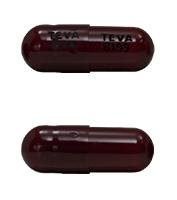Sunitinib and Alcohol/Food Interactions
There are 2 alcohol/food/lifestyle interactions with sunitinib.
Sunitinib Food/Lifestyle
Moderate Food Interaction
GENERALLY AVOID: Consumption of grapefruit or grapefruit juice during sunitinib therapy may increase the plasma concentrations of sunitinib. The proposed mechanism is inhibition of CYP450 3A4-mediated metabolism by certain compounds present in grapefruit.
MANAGEMENT: Although clinical data are lacking, it may be advisable to avoid the consumption of large amounts of grapefruit or grapefruit juice during sunitinib therapy.
References (1)
- (2006) "Product Information. Sutent (sunitinib)." Pfizer U.S. Pharmaceuticals Group
Switch to consumer interaction data
Sunitinib High Blood Pressure (Hypertension)
Moderate Potential Hazard, Moderate plausibility
sunitinib - hypertension
The use of sunitinib has been associated with hypertension and it should be used with caution in patients with elevated blood pressure. Therapy with sunitinib should be withheld in case of severe hypertension and appropriate measures should be taken to correct the blood pressure to acceptable readings. Close monitoring of blood pressure is recommended.
References (1)
- (2006) "Product Information. Sutent (sunitinib)." Pfizer U.S. Pharmaceuticals Group
Switch to consumer interaction data
Sunitinib drug interactions
There are 492 drug interactions with sunitinib.
Sunitinib disease interactions
There are 13 disease interactions with sunitinib which include:
- liver disease
- lung toxicity
- adrenal toxicity
- cardiovascular Events
- dermatologic toxicities
- hemorrhagic events
- hypertension
- hypoglycemia
- ONJ
- proteinuria
- QT prolongation
- thyroid abnormality
- Sunitinib – renal disease
More about sunitinib
- sunitinib consumer information
- Check interactions
- Compare alternatives
- Pricing & coupons
- Reviews (35)
- Drug images
- Side effects
- Dosage information
- During pregnancy
- Drug class: multikinase inhibitors
- Breastfeeding
- En español
Related treatment guides
Drug Interaction Classification
| Highly clinically significant. Avoid combinations; the risk of the interaction outweighs the benefit. | |
| Moderately clinically significant. Usually avoid combinations; use it only under special circumstances. | |
| Minimally clinically significant. Minimize risk; assess risk and consider an alternative drug, take steps to circumvent the interaction risk and/or institute a monitoring plan. | |
| No interaction information available. |
See also:
Further information
Always consult your healthcare provider to ensure the information displayed on this page applies to your personal circumstances.


